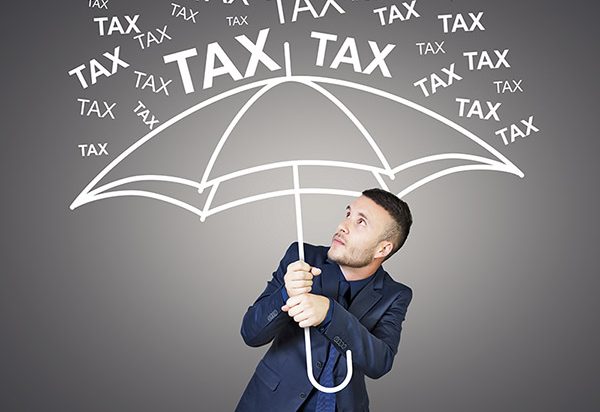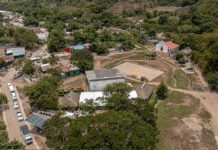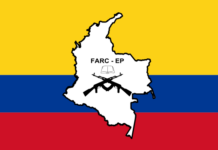
As the new tax reforms come into force, Phoebe Hopson finds out why the government has pushed through politically unpopular measures and what you need to know to make sure you successfully adapt to the changes.
Two main aspects of the controversial tax reforms that came into force on February 1 are likely to impact the average foreigner living in Bogotá: the increase in IVA (VAT or sales tax) and a lowering of the income tax threshold, meaning more people will have to pay tax.
The bill increases IVA on many products from 16% to 19% and also widens the tax bracket – those earning more than COP$2.7million per month are now required to pay tax.
According to David Wright, Bogotá-based chairman of business services company BizLatinHub, this means that the most affected will not be large multinational corporations, but small business owners and those individuals earning higher than average salaries – foreign language teachers, for example. These groups must be aware that they may need to pay tax, says Wright, who warns it will be a “great year for accountants.”
Although the new regulations “should not cause too much of a headache for big companies”, says Wright, small businesses should look for a good accountant to help them keep in line with the new regulations.
“The key thing for foreigners is that if you are employed by a company or if you freelance, you may now be required to pay tax,” he says. “Don’t expect it to be automatically taken out of your paycheck: it is your responsibility to register with the DIAN if you earn more than COP$2.7million per month, and start filing tax in March.”
The latest tax reform has met fierce opposition, with many commentators arguing that sales tax is the most regressive form of tax because it hits the poorest people the hardest. And in late 2016, attorney general Néstor Humberto Martínez raised concerns in a three page letter to the minister of finance, Mauricio Cárdenas, that new law only focuses on tax evasion related to VAT but does not address personal tax avoidance. Why, then, was President Santos so insistent on pushing the measures through?
The key thing for foreigners is that if you are employed by a company or if you freelance, you may now be required to pay tax.
Colombia suffered a sharp slump in government revenues when oil prices began to fall in the second half of 2014. Rating agencies such as Fitch and Standard & Poor’s (S&P) made clear that the country needed to push through the reforms to lessen the government’s fiscal deficit and ensure the sovereign maintained its BBB investment grade credit rating. This rating not only reduces the government’s borrowing costs, meaning it can spend less of its revenue on interest payments, but it also underscores Colombia’s economic stability and attractiveness as an investment destination.
Cárdenas described the bill as “fundamental to improving the economic performance of the country” in a press release on 27th January.
So far, the reform has not been sufficient for Fitch and S&P to remove Colombia’s rating from negative outlook status. However, both agencies praised the reforms. S&P recognised them as an “important political commitment to bolster the tax base in the coming years and gradually reduce the general government deficit.” Fitch highlighted the government’s “commitment to addressing the sovereign’s loss of oil revenues, rebuilding the tax base, and supporting the economy’s formalization and investment recovery”.
Another driving force behind the reforms is Colombia’s desire to join the likes of Mexico, the UK and the USA in the OECD (Organisation for Economic Co-operation and Development) – a group of countries that promote policies to improve the economic and social well-being of people around the world. The OECD approved Colombia’s track to ascension in 2013, however a report published in 2015 denounced tax evasion as “pervasive” and criticised the country’s tax system as being unfair and complex.
The reforms also reflect the country’s strategic priorities, such as pushing infrastructure and tourism in the country. Correspondingly, the new legislation provides tax breaks for those wanting to open hotels. Construction, mining and petroleum companies will also find the new tax system particularly beneficial.
Weekly family shop
The VAT increase from 16% to 19% is going to hit your shopping basket sooner rather than later. The products most affected are personal hygiene, household cleaning products, groceries, sauces and condiments.
Sadly, the Colombian Government through the Ministry of Finance has already introduced a higher tax on national beers. On average they will be taxed COP$339.10 per every unit of 300 cubic centimetres.
The hike will also hit clothing and footwear, however VAT on female sanitary products will be reduced by 9.6%.
Tips from BizLatinHub chairman, David Wright
For most the words tax reforms causes an immediate sense of panic and feelings of dread. Here are the four things you need to know to make sure you don’t fall foul of the new law.
Tax returns
Be aware if you fall into the tax bracket: If you earn COP$2.7million a month or more you will now have to a process an annual tax return in March.
Create your own company
Depending on what you do, creating a company via the Cámara de Comercio may allow you to benefit by claiming expenses and reducing your tax bill.
Be organised and keep your receipts
In order to claim your expenses, now more than ever you need to keep your receipts. Colombia is an informal country, but if you want to save money make sure you are asking for rent receipts and utility bills. You can even claim travel under expenses.
Hire an accountant
While everyone else grumbles, 2017 is set to be a good year for accountants. Colombia has two years to transfer from the COLGAAP to IFRS accountancy system. A good accountant will guide you seamlessly through this process.
BizLatinHub for the last two and a half years has been advising and helping foreign companies set up in Colombia and other Latin American countries. They offer free 20 minute consultations.













